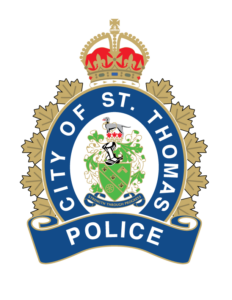
911 information
HISTORY
The three-digit telephone number “9-1-1” has been designated as the “Universal Emergency Number” for citizens throughout North America. It is intended as a nationwide telephone number and gives the public quick and easy access to a Public Safety Answering Point (PSAP).
In the United States, the first catalyst for a nationwide emergency telephone number was in 1957, when the National Association of Fire Chiefs recommended use of a single number for reporting fires.
In November 1967, the Federal Communications Commission (FCC) met with the American Telephone and Telegraph Company (AT&T) to find a means of establishing a universal emergency number that could be implemented quickly. In 1968, AT&T announced that it would establish the digits 9-1-1 (nine-one-one) as the emergency code throughout the United States.
The code 9-1-1 was chosen because it best fit the needs of all parties involved. First and foremost, it meets public requirements as it is brief, easily remembered, and can be dialled quickly. Second, because it is a unique number, never having been authorized as an office code, area code, or service code, it meets the long range numbering plans and switching configurations of the telephone industry.
The first 9-1-1 call was placed on February 16, 1968, in Haleyville, Alabama. The call was made by the Alabama Speaker of the House, Rankin Fite.
Canada recognized the advantages of a single emergency number and chose to adopt 9-1-1 in 1972. The city of London, Ontario was the first to implement the system in 1974.
WHEN TO CALL 911
9-1-1 is only to be used in emergency situations!
An emergency is any situation that requires immediate assistance from the police, the fire department or an ambulance. If you are ever in doubt of whether a situation is an emergency, you should call 9-1-1. It’s better to be safe and let the 9-1-1 calltaker determine if you need emergency assistance.
If you know your situation is not an emergency, then call our non-emergency phone line (519-631-1224) and ask for “Communications”.
Not sure what help you need?
When the 9-1-1 operator answers the phone, the 9-1-1 operator will ask if you want the police, fire or ambulance. Tell the 9-1-1 operator up front which one you want. If you don’t know what help you need, tell the 9-1-1 operator and let them determine for you.
Always answer all the 9-1-1 operator’s questions!
The 9-1-1 operator has important questions that need to be answered! In a stressful situation, you may not understand why you are being asked these questions. Just remember, the 9-1-1 operator’s primary goal is to keep you safe. The 9-1-1 operator will ask you questions to ensure you are safe and out of harm’s way. If the 9-1-1 operator tells you to go outside, go to another room, unlock the door… always follow the 9-1-1 operator’s directions!
Help is on the way!
After the 9-1-1 operator has been assured of your safety, you will be asked questions about the person(s) involved in the situation. Some of these questions will involve relating what you saw and what you heard. Don’t get frustrated. The person you are talking to is not the person who is coming to see you. While the 9-1-1 operator is talking to you on the phone, Police officers and other emergency responders will be on the way to your location. When you call 9-1-1, you are our eyes and ears. We rely heavily on what you can relate to us. Don’t be scared or frustrated. Let the 9-1-1 operator guide you with their questions.
Stay calm. Stay safe.
Stay on the phone with the 9-1-1 operator.519-631-1224